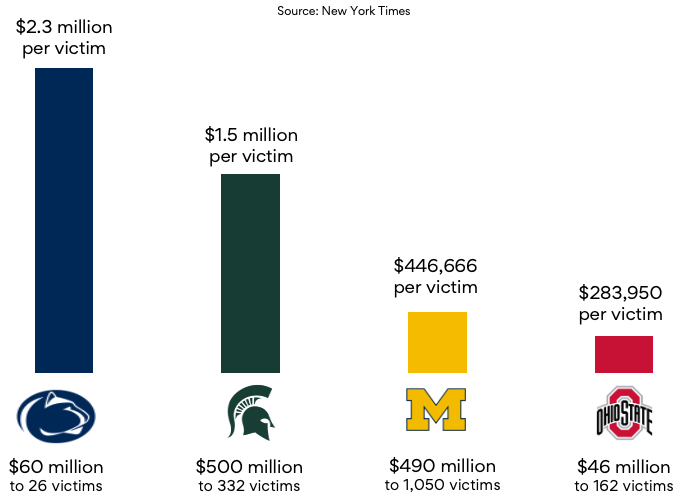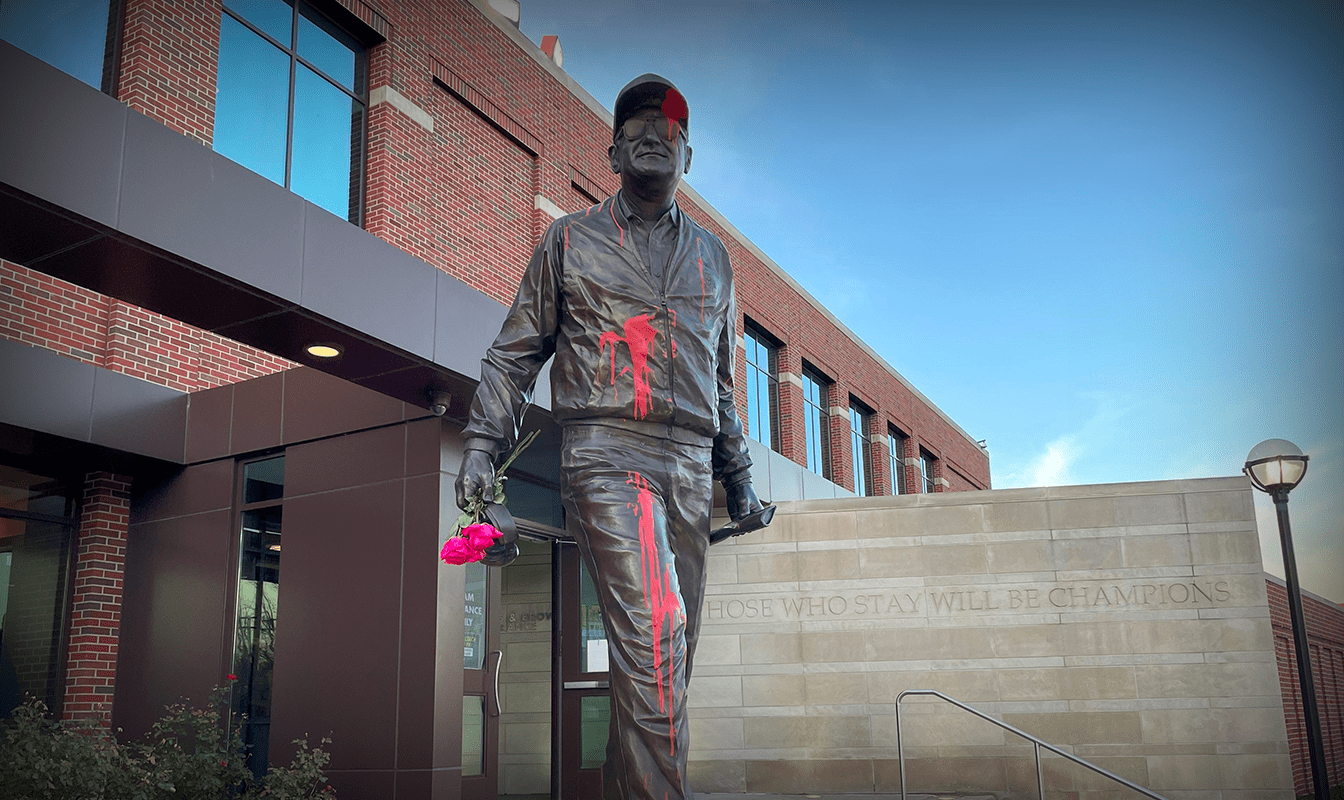On January 19th, the University of Michigan said it would pay $490 million to more than a thousand people who had accused former doctor, Robert E. Anderson, of sexual abuse.
It goes down as one of the largest payouts to settle allegations of sexual abuse by a university. Jamie White, a lawyer for many of Anderson’s victims, praised Michigan’s response, saying: “The university should be commended and not condemned.”
University Payouts to Sexual Abuse Victims

But for many of the victims and Michigan faithful, the situation still feels like an open wound. Central campus is focused on the fallout from the firing of President Mark Schlissel. The athletic department is contemplating the legacy of the late legendary football coach Bo Schembechler, who is alleged to have covered up Anderson’s abuse for decades. And then there are the victims themselves, some of whom have said that the university needs to take more action than simply writing a check. Chuck Christian, a survivor of Anderson’s abuse, told NPR on February 1st that “Michigan is still not acknowledging that they were responsible for this happening to us.”
As we have seen with past clients like Penn State in the wake of the Jerry Sandusky scandal, wounds as deep as these need a lot of time and attentive care to heal properly. We emphasize to all organization enduring a crisis that there will always be a “look back” on how we performed during and after the inciting incident. With that in mind, it is important to follow these critical steps for reputational recovery – the “Five A’s.”
The Five A’s:
Acceptance
has the leadership in your organization fully accepted the wrongdoing?
Apology
Have you effectively apologized for the events?
Amends
Have you offered restitution for those affected?
Avoidance
What steps are you taking internally to ensure that this doesn’t happen again?
Action
What moves are you making to “make the world a better place?”
Of course, if there is litigation underway, there will always be tension between the “Five A’s” as it relates to the protection of the institution’s legal posture. But we’ve often counseled clients that they don’t have to wait for the issuance of a report, or the outcome of litigation, to take prophylactic steps (i.e. avoidance and action).
As for Michigan, which appears to be over the legal hill, there’s always opportunity in crisis to grow and set a new standard. For example, the university could lay out a plan in which they become a leader in higher education when it comes to research, and action dedicated to the prevention of sexual abuse on college campuses. They could blaze a bold new path while laying concrete steps and benchmarks along the way. All while making sure to keep their constituents informed of the journey.

